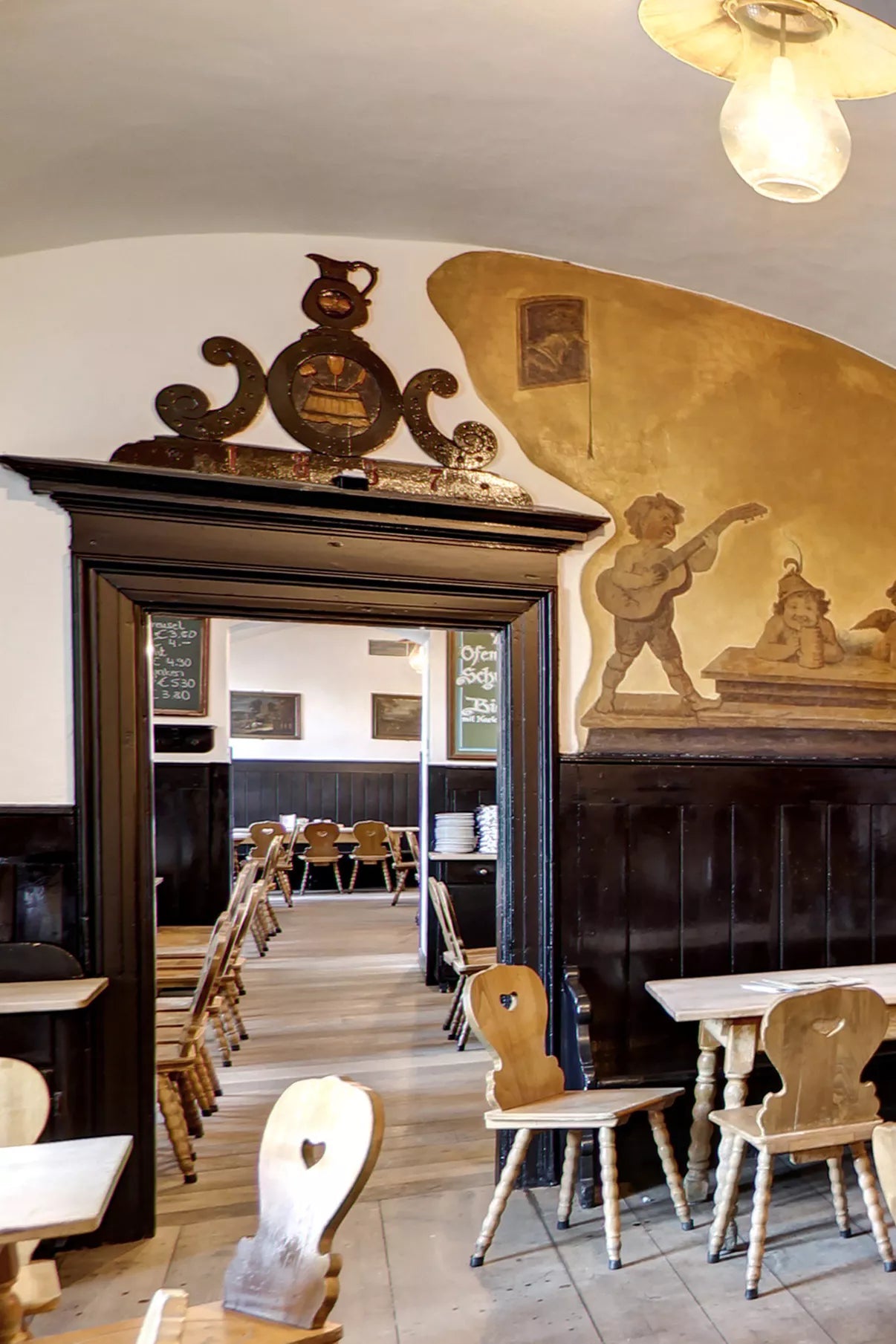
Conviviality and tradition for generations.
Our story
Founded as a small "Bräustibl" (brewery) for thirsty brewers, initially by the Tegernsee Monastery Brewery and later by the Ducal Bavarian Brewery, the Tegernseer Bräustüberl has long been one of Bavaria's most famous taverns. Its reputation is primarily characterized by the diversity of its guests, who early on created a unique atmosphere of preserving tradition and tolerant openness: During the reign of King Max I Joseph, also the first Wittelsbach brewmaster in Tegernsee, locals met European nobility here, followed by summer visitors and artists, the beautiful, the rich, the important, and the ordinary.
Almost everyone found their way to the Bräustüberl – and fell in love with it. At least, those who value authenticity did. Because the Bräustüberl and its regulars have never let themselves be manipulated. Peaceful, Bavarian, hearty, and cozy, the atmosphere is at this Tegernsee-Old Bavarian temple of tradition, which, above all, has always been a place of genuine human-to-human communication, where people look at each other and smile, regardless of their financial situation, title, origin, or religion.

1822 - High-ranking visitors at Tegernsee: Emperor and Tsar visit the King


1803 - Dissolution of the monastery

1705 - Tegernseer in the Sendlinger Murder Christmas

1678 - The inventor of the Bräustüberl: Abbot Bernhard Wenzl

1675 - Beer for the Bräustüberl
Showing 26/26


